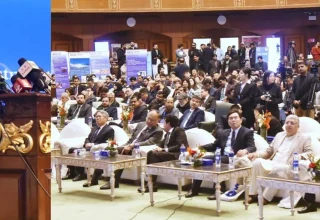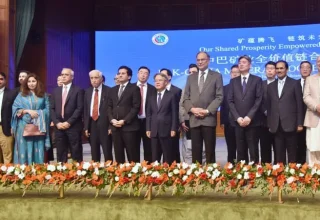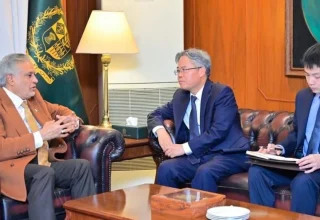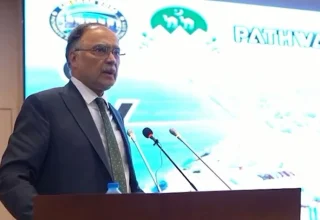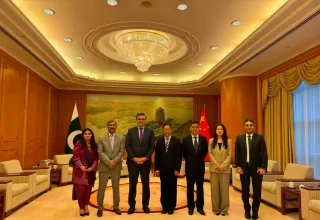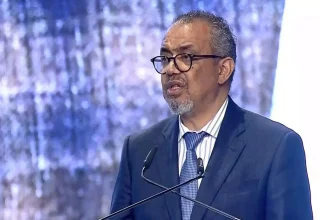
Chairperson of the Senate Standing Committee on Climate Change and Environmental Coordination, Senator Sherry Rehman, chaired a meeting of the Committee to review Pakistan’s preparations for the upcoming COP30 in Brazil, assess the country’s climate finance strategy, and evaluate progress on the implementation of the Single-Use Plastics (Prohibition) Regulations, 2023.
Senator Rehman observed that Pakistan’s top position in 2022 among climate-vulnerable countries stemmed from the catastrophic floods that year, warning that the country is “sleepwalking into a resilience nightmare.” She emphasized that Pakistan’s participation at COP30 must go beyond symbolic attendance. “You go there for climate financing — not just to be seen. Pakistan must reclaim the climate leadership it once demonstrated when we successfully secured the Loss and Damage fund three years ago,” she said.
Expressing concern that Pakistan had lost traction internationally on Loss and Damage and climate finance since its landmark advocacy in 2022, Senator Rehman noted, “We created enormous goodwill and built the operational committee for Loss and Damage, but since then, we have come crashing down. We must revive Pakistan’s climate diplomacy — especially on adaptation finance. This is not just about NDCs; it’s about survival.”
She termed the global disparity in climate funding “climate colonialism,” pointing out that $7 trillion continues to be spent annually on fossil fuel subsidies, while developing nations like Pakistan struggle for grants.
According to the World Bank, Pakistan requires $348 billion by 2030 to cope with climate impacts, including $152 billion specifically for adaptation and resilience. By 2050, climate inaction could cost the country $1.2 trillion, while flooding alone may cost $90 billion and displace up to 400 million people, mostly in Punjab. Current spending on adaptation is only 6% of what is needed, creating a 16-fold gap in financing. In 2021, the domestic private sector contributed only 5% of total tracked climate finance, of which a mere 0.7% supported adaptation. Over 80% of all climate finance went to mitigation projects such as renewable energy.
Briefing the Committee, the Secretary for Climate Change said that COP30, to be hosted by Brazil, will focus on Nationally Determined Contributions (NDCs), climate finance, forests, and oceans. Senator Rehman noted that Pakistan remains the lowest in South Asia in forest cover while its coastline faces extreme pollution. She called for post-COP30 accountability, saying, “After COP30, this Committee will ask for a full assessment of Pakistan’s forest cover. During the floods, we saw entire regions like Chitral turn brown that should never happen again. We should ask for Internationally Determined Contributions, along with submission of NDCs 3.0.”
The Secretary informed the Committee that Pakistan will engage in negotiations at COP30 from November 10 to 21, including discussions on carbon credit trading with Korea. She said that while the Loss and Damage Fund will become operational, financial commitments remain low, with $700 million in pledges requiring follow-up for disbursement.
Senator Rehman emphasized stronger provincial engagement in climate policy implementation. “Use this Committee as a platform to work with the provinces. Without their involvement, no climate policy can succeed. Balochistan, in particular, must not feel remote or disconnected from national processes,” she said. Committee Members Senator Quratulain Marri and Senator Kakar raised concerns about weak coordination and questioned whether provinces were receiving adequate climate funding.
The Committee also discussed the performance of the Meteorological Department, particularly during the August 19 heavy rainfall in Karachi. Senator Quratulain Marri noted that despite forecasts predicting a weakening monsoon, Karachi experienced one of its heaviest downpours of the year. “The Meteorological Department even listed ‘Sindh’ as a district in its forecast which shows how outdated its systems are,” she said.
Senator Rehman remarked that previous governments had failed to properly utilize the department’s grants, stressing that accountability was needed for recurring forecasting failures. She proposed engaging NDMA and private weather platforms to strengthen early warning systems nationwide. “Everyone is entitled to an early warning system. If the state can’t deliver timely alerts, we should work with those who can,” she said.
Turning to plastic pollution, the Committee reviewed enforcement of the Single-Use Plastics (Prohibition) Regulations, 2023. Senator Rehman drew attention to the toxic and long-lasting impact of microplastics. “Plastics are not just waste, they are chemicals. Some don’t dissolve for hundreds or thousands of years. These forever chemicals are linked to cancers, and the Indus is now the world’s second most polluted river choked with plastics,” she said.
She noted that only 9% of plastics are recycled globally and warned that by 2050, plastic waste will outweigh marine life in oceans. She expressed disappointment over stalled global negotiations for a Plastics Treaty due to lack of commitment from major producers. “The big producers must commit to affordable, low-cost alternatives. Pakistan too must invest in recycling infrastructure, there is no recycling facility in Islamabad, and the city’s nullahs are choking with plastic waste,” she said.
The Deputy Commissioner of Islamabad briefed the Committee that enforcement measures include fines of up to Rs. 1 million on manufacturers and that visible progress has been made in reducing plastic bag usage in the capital. However, Senator Rehman directed that comprehensive recycling facilities be established to ensure long-term impact.
In conclusion, Senator Rehman stressed that climate finance, resilience, and accountability must remain at the centre of Pakistan’s national agenda. “We cannot afford to be reactive anymore — the next climate disaster will not wait for us to coordinate. We need to move from policy to practice, from silos to synergy,” she said.
Among those present were Senator Bushra Anjum Butt, Senator Naseema Ehsan, Senator Quratulain Marri, Senator Kakar, and via Zoom, Senator Sarmad Ali and Senator Dr. Zarqa Suharwardy Taimur.





